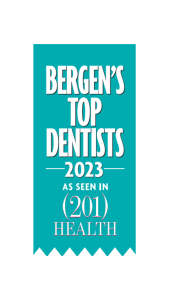Temporomandibular Joint Disorder (TMJ) affects millions of people worldwide, yet awareness about its symptoms and impact on daily life remains relatively low. Today, we aim to shed light on TMJ, its symptoms, and the importance of early recognition and management. By understanding the signs and seeking timely help, individuals can significantly improve their quality of life. Let’s dive into the world of TMJ, exploring its symptoms, causes, and available treatments.
What is TMJ?
The temporomandibular joint, located on each side of the face, connects the jawbone to the skull. It enables crucial functions like chewing, speaking, and swallowing. Various factors, including stress, teeth grinding, and jaw misalignment, can cause TMJ.
People often use the terms TMJ and TMD (Temporomandibular Disorder) interchangeably to describe similar conditions affecting the jaw joint and muscles.
Common TMJ Symptoms
Recognizing TMJ symptoms is vital for early intervention. Common symptoms include persistent jaw pain, clicking or popping sounds, limited jaw movement, and frequent headaches or migraines. If you do not have any pain or movement limitations with jaw clicking, you probably do not have to be treated for TMJ. TMJ-related muscle tension can also affect these areas, causing discomfort and impacting one’s overall well-being.
In addition to the direct symptoms, such as jaw pain, other common symptoms of TMJ include ear pain and ringing, facial pain, as well as neck and shoulder pain. The facial muscles, when affected by TMJ-related tension or misalignment, can cause varying degrees of discomfort. This pain often manifests as a persistent dull ache, sharp shooting sensations, or even a feeling of tightness across the face. Shoulder pain and stiffness may reduce range of motion leading to a constant ache in the neck and shoulder area.
Less Common TMJ Symptoms
TMJ can be identified by a variety of symptoms, some of which are not commonly known. In addition to the well-known signs, such as jaw pain and stiffness, there are other indicators to look out for. These can include dizziness or lightheadedness, tooth sensitivity caused by continuous clenching or grinding, difficulties in swallowing, and noticeable changes in bite alignment. Appreciating the diverse and subtle ways in which TMJ can manifest is pivotal for both accurate diagnosis and the development of effective treatment strategies.
By acknowledging these less frequently discussed symptoms, healthcare professionals provide more comprehensive care, ensuring that patients receive tailored treatments addressing the specific nuances of their condition. Raising awareness about these nuanced symptoms empowers individuals to recognize potential TMJ issues early, prompting timely medical intervention. Understanding the multifaceted nature of TMJ not only enhances the diagnostic process but also contributes significantly to improving the overall quality of care and patients’ well-being.
Diagnosing TMJ
Diagnosing TMJ involves a comprehensive approach. Healthcare professionals and dentists typically conduct physical examinations, use imaging tests, and evaluate the patient’s dental history. Seeking professional help remains essential for an accurate diagnosis. Individuals experiencing TMJ symptoms should not hesitate to consult a healthcare professional for proper evaluation and guidance.
If you are experiencing persistent jaw pain or tenderness, as well as if you find it difficult to fully open or close your jaw, it is important to consult a medical professional. Whether it is a doctor, dentist, or a TMJ specialist, they can evaluate your symptoms, determine potential causes, and recommend suitable treatments for your condition. Seeking timely medical advice is essential for proper diagnosis and effective management of your jaw-related issues.
Final Thoughts on TMJ
In conclusion, TMJ is a common yet often overlooked condition that can significantly impact one’s quality of life. By being aware of the symptoms and understanding their implications, individuals can take proactive steps toward seeking appropriate medical care. We urge you to pay attention to your oral and facial health to recognize potential TMJ symptoms. Early diagnosis and proper management, under the guidance of healthcare professionals, can lead to effective relief and an improved quality of life.
Oral health plays a vital role in your overall well-being. By staying informed and seeking help when needed, you can ensure a healthier, happier future, free from the constraints of TMJ-related discomfort.


